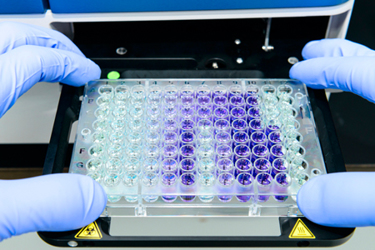Cell Based Potency Assays: De-Risk Your Path To Patients With An Experienced CDMO
By Danny Rooney, QC Senior Manager

Since the FDA approval of the first monoclonal antibody (mAb) drug, muromonab-CD3, in 1986, these biologics have fundamentally transformed the therapeutic landscape. Offering highly targeted and precision approaches, mAbs have been successfully developed for a wide range of diseases, including cancer, autoimmune disorders, rare genetic conditions, and more recently, viral pathogens like SARS-CoV-2.
With over 100 approvals to date, antibody-based therapeutics represent the fastest-growing segment of the biopharmaceutical market, accounting for approximately one-fifth of new FDA-approved drugs annually. Beyond conventional IgG antibodies, innovative technologies like antibody-drug conjugates (ADCs), bispecific antibodies (BsAbs), engineered antibody fragments, and Fc-fusion proteins are expanding the therapeutic potential of mAbs through novel mechanisms of action, improved pharmacokinetics, and enhanced tumor penetration.
To ensure the safety, potency, efficacy, and integrity of mAb therapeutics for human use, rigorous characterization is essential throughout the development and manufacturing process. By employing physical, structural, and biological analyses, characterization studies help define the critical quality attributes (CQAs) of mAb drug candidates. This comprehensive approach aligns with international regulatory guidelines established by agencies such as the FDA and EMA.
Get unlimited access to:
Enter your credentials below to log in. Not yet a member of Bioprocess Online? Subscribe today.
